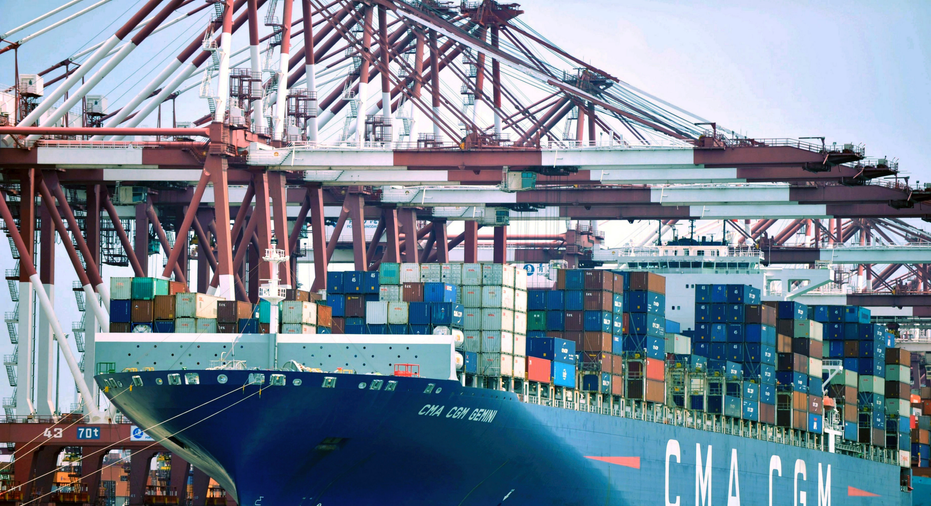China announces $60B of US goods for tariff retaliation
BEIJING – China said Friday it is poised to impose retaliatory tariffs on $60 billion worth of U.S. imports, including coffee, honey and industrial chemicals, if Washington goes ahead with its latest trade threat.
China's Finance Ministry accused the Trump administration of damaging the global economy after the U.S. proposed increasing duties on $200 billion of Chinese goods in the second round of a dispute over technology.
"China is forced to take countermeasures," said a ministry statement. It said retaliatory duties of between 5 and 25 percent will be imposed on 5,207 products "if the U.S. side persists in putting its tariff measures into effect."
Washington imposed 25 percent duties on $34 billion of Chinese goods on July 6 in response to complaints Beijing steals or pressures companies to hand over technology. Beijing retaliated by imposing similar charges on the same amount of U.S. products.
White House press secretary Sarah Huckabee Sanders told reporters Friday that "instead of retaliating, China should address longstanding concerns about its unfair trading practices."
A Chinese foreign ministry spokesman had earlier called on Washington to "come to its senses" and settle the dispute.
Chinese leaders have offered to narrow their politically sensitive trade surplus with the United States by purchasing more American goods. But they have rejected changing technology development plans they see as a path to prosperity and global influence.
There's no end in sight, and the dispute could chill global trade and economic growth.
China's new threat targeting a smaller amount of U.S. goods reflects the fact that Beijing is running out of products for retaliation due to its lopsided trade balance with the United States.
China's imports from the United States last year totaled $153.9 billion. After the earlier tariffs $34 billion of U.S. goods, about $120 billion is available for retaliation.
The highest penalties on the new list would be imposed on honey, vegetables, mushrooms and chemicals, targeting farming and mining areas that supported President Donald Trump in the 2016 election.
The new list includes products as varied as snow blowers and 3-D printers, suggesting Chinese authorities are struggling to find enough imports their own economy can do without.
Beijing's earlier round of tariffs appeared designed to minimize the impact on the Chinese economy by targeting soybeans, whiskey and other goods available from Brazil, Australia and other suppliers.
Trump initially proposed 10 percent tariffs on an additional $200 billion of Chinese imports, but he told trade officials this week to consider raising that to 25 percent. It will be September at the earliest before the U.S. decides whether to impose those tariffs.
Chinese authorities warned earlier that if the dispute escalated, they would adopt unspecified "comprehensive measures." That prompted concern among American companies that retaliation might expand to disrupting their operations in China.
The United States and China have the world's biggest trading relationship but official ties are increasingly strained over complaints that Beijing's technology development tactics hurt American companies.
Trump's tariffs target goods the White House says benefit from industrial policies such as "Made in China 2025," which calls for developing Chinese competitors in robotic, artificial intelligence and other fields.
The dispute is part of broader U.S. complaints about global trading conditions that have prompted Trump to raise duties on steel, aluminum, washing machines or solar panels from Canada, Europe, Japan and South Korea.
A spokesman for China's foreign ministry appealed to Washington to negotiate but could not confirm reports the two sides were setting up talks.
"We urge the United States to come to its senses, correct its erroneous acts and create the necessary condition for a proper settlement as soon as possible," spokesman Geng Shuang said.
Trump campaigned on a promise to bring down America's massive trade deficits by renegotiating trade agreements and getting tough on countries like China that sell the U.S. far more than they buy from it.
But the U.S. Commerce Department reported Friday that the American trade deficit climbed to $46.3 billion in June from $43.2 billion in May. The deficit in goods trade with China also rose. So far this year, the trade gap is up more than 7 percent from January-June 2017.
___
AP Economics Writer Paul Wiseman contributed to this report.





















